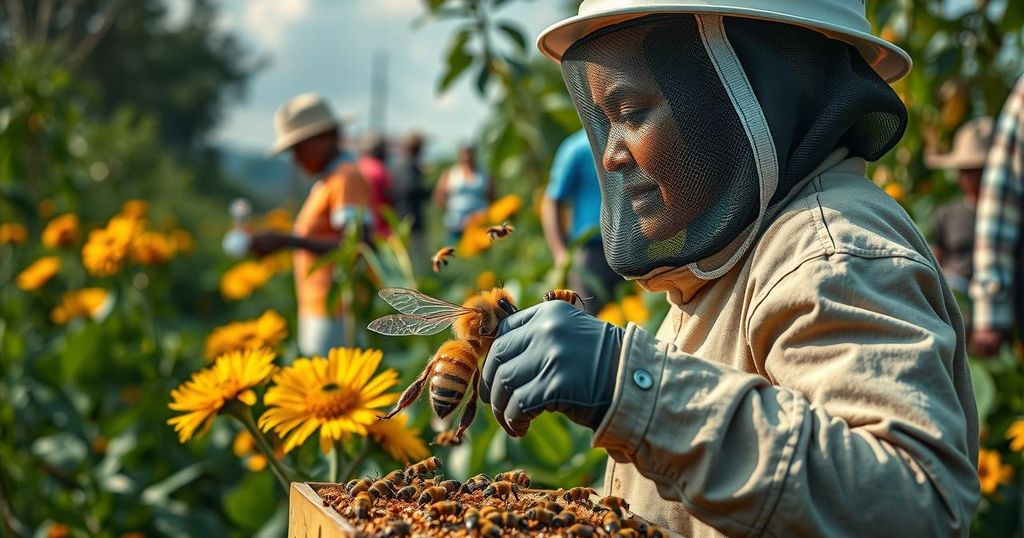Beekeeping: A Sustainable Solution for Climate-Impacted Communities in Kenya
Beekeeping is being introduced as a climate-resilient livelihood alternative for communities in Kenya affected by climate change. This initiative offers economic benefits and supports environmental sustainability, enabling residents to adapt to changing weather patterns.
Communities in Kenya which inhabit dryland areas are facing severe challenges as global warming increasingly impacts their livelihoods. The U.N. Environment Program highlights that frequent droughts and floods are undermining traditional practices such as farming and livestock rearing. In response, conservation experts are guiding these communities towards the adoption of beekeeping as a viable alternative. This initiative not only provides a source of income but also promotes biodiversity and environmental sustainability, thereby helping residents adapt to the shifting climate conditions. Reports from Garsen, Kenya, detail how this strategy is empowering local populations to develop climate-resilient livelihoods, fostering both economic stability and ecological recovery.
The impact of climate change on agriculture and pastoralism in Kenya’s drylands has been profound, leading to food insecurity and economic hardships for local communities. With traditional livelihoods under threat, there is a pressing need for innovative solutions to help these populations adapt to unpredictable weather fluctuations. Beekeeping emerges as a compelling alternative, offering both ecological benefits, such as pollination for crops, and economic opportunities for families. By diversifying income sources, communities can better withstand the adverse effects of climate change while contributing positively to their environment.
In summary, beekeeping is emerging as an effective strategy for communities in Kenya to address the challenges posed by climate change. This practice not only enhances economic resilience by providing alternative livelihoods but also supports environmental sustainability. As more communities embrace beekeeping, they are better equipped to navigate the complexities of a changing climate, ultimately fostering both community welfare and ecological health.
Original Source: www.voaafrica.com




Post Comment